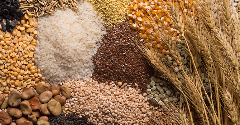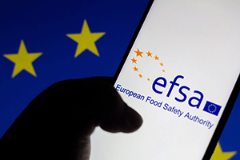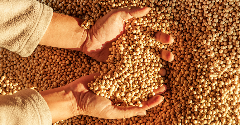News
EFSA is Currently Considering Five Claims for Caffeine, and an Opinion is Expected by the End of 2013
27 Aug 2013Caffeine is a well-known functional ingredient widely used in the nutritional products industry. Energy drinks, sports foods, fortified foods and food supplements (including energy shots) containing caffeine have a significant EU market share, and the impact of the developments on claims will have a major impact on the future of these products which may affect […]

Caffeine is a well-known functional ingredient widely used in the nutritional products industry. Energy drinks, sports foods, fortified foods and food supplements (including energy shots) containing caffeine have a significant EU market share, and the impact of the developments on claims will have a major impact on the future of these products which may affect daily levels and conditions of use.
At the end of 2012, five Article 13(1) health claims relating to caffeine were put “on hold” until assessment by EFSA and final decision by the EU legislators. These five claims are:
| Claim | Conditions of use of the claim | Conditions and/or restrictions of use of the food and/or additional statement or warning |
| Caffeine contributes to an increase in endurance performance | In order to bear the claim, information shall be given to the consumer that the beneficial effect is obtained with caffeine consumption at doses of 3 mg/kg body weight at least one hour prior to exercise, and only if any other caffeine consumption is avoided for at least 12 hours prior to consumption of the product in habitual caffeine consumers. | The claim may be used only for foods targeting adults performing endurance exercise. |
| Caffeine contributes to an increase in endurance capacity | In order to bear the claim, information shall be given to the consumer that the beneficial effect is obtained with caffeine consumption at doses of 3 mg/kg body weight at least one hour prior to exercise and only if any other caffeine consumption is avoided for at least 12 hours prior to consumption of the product in habitual caffeine consumers. | The claim may be used only for foods targeting adults performing endurance exercise. |
| Caffeine contributes to a reduction in the rated perceived exertion/effort during endurance exercise | In order to bear the claim, information shall be given to the consumer that the beneficial effect is obtained with caffeine consumption at doses of 4 mg/kg body weight at least one hour prior to exercise, and only if any other caffeine consumption is avoided for at least 12 hours prior to consumption of the product in habitual caffeine consumers. | The claim may be used only for foods targeting adults performing endurance exercise. |
| Caffeine helps to increase alertness | The claim may be used only for food that contains at least 75 mg caffeine per quantified portion. In order to bear the claim, information shall be given to the consumer not to exceed a daily intake of 300 mg of caffeine. | The claim shall not be used for foods targeting children. |
| Caffeine helps to improve concentration | The claim may be used only for food that contains at least 75 mg caffeine per quantified portion. In order to bear the claim, information shall be given to the consumer not to exceed a daily intake of 300 mg of caffeine. | The claim shall not be used for foods targeting children. |
These “on-hold” health claims can still be used today as long as compliance is ensured with all general principles of the EU’s Nutrition and Health Claims Regulation (EC) No 1924/2006 and other European or national provisions applicable to them. In the meantime, claims may be used under the responsibility of food business operators.
The European Food Safety Authority (EFSA) is currently evaluating five health claims related to caffeine. The EFSA opinion could have a significant impact on the functional food sector. The conditions of use and the minimum dosage initially proposed in particular may be amended. The final EFSA report on the safety of caffeine is scheduled to be provided to the European Commission by 31 December 2013.
EFSA’s opinion on the safety of caffeine will be of great importance in terms of how products containing caffeine that are widely sold will be able to communicate the direct effects of caffeine to the consumer.
It is an issue that needs to be carefully monitored by food manufacturers, because the decisions of the EU and national authorities in the course of 2013 will have a significant impact on specific food categories.
Related news

BelliWelli secures funding for retail and team expansion
2 Jan 2025
US fibre brand BelliWelli has confirmed a further $10 million series B investment from Invus. The investment will help the company further expand its presence in the US.
Read more
EU calls to harmonise allergen labelling increase
1 Jan 2025
Allergy awareness efforts focus on implementing a European reference laboratory and collaboration to standardise labels and support allergen identification.
Read more
Japanese study points to risk of excessive nutritional fortification
31 Dec 2024
Fortified foods and supplements are mainly beneficial but there is a small risk of over-supplementation – particularly for vitamin B6, a Japanese study has concluded.
Read more
Is it time for a global definition of whole grain?
30 Dec 2024
Amid a lack of harmonisation, the European Food Information Council (EUFIC) is calling for a global definition of the term whole grain to end consumer confusion.
Read more
EFSA publishes new food additive research on non-nutritive sweetener saccharine
27 Dec 2024
The European Food Safety Authority (EFSA) has released new recommendations on saccharin and its sodium, potassium and calcium salts (E 954) as food additives.
Read more
FDA delivers workshop on nutrition regulation and science
19 Dec 2024
The FDA hosted a nutrition regulatory science workshop exploring ultra-processed foods and emerging technologies, aiming to spotlight the relationship between nutrition, science, and evidence-based policies.
Read more
How US soy exports shape Southeast Asian food
19 Dec 2024
As Southeast Asia and the US mark 20 years of trade, trends in soy, especially plant-based preferences, signal increasing demand for high-quality protein sources.
Read more
Hormel Foods sells its Health Labs brands to Lyons Magnus
17 Dec 2024
Hormel Foods has confirmed the sale of its Hormel Health Labs division to Lyons Magnus, creating Lyons Health Labs. The strategic move aims to better position Lyons Magnus as a leading player in the growing US market for nutritional and health products...
Read more
Nestlé releases products for pregnancy and fertility
13 Dec 2024
Building on in-house research, existing scientific evidence, and consumer demands, the global food company has developed products designed for mothers and babies.
Read more
Consumer awareness and transparency key factors in shift to natural-based emulsifiers
11 Dec 2024
The demand for natural-based emulsifiers in the food industry is surging as health concerns over the use of synthetic emulsifiers have consumers looking for alternatives.
Read more